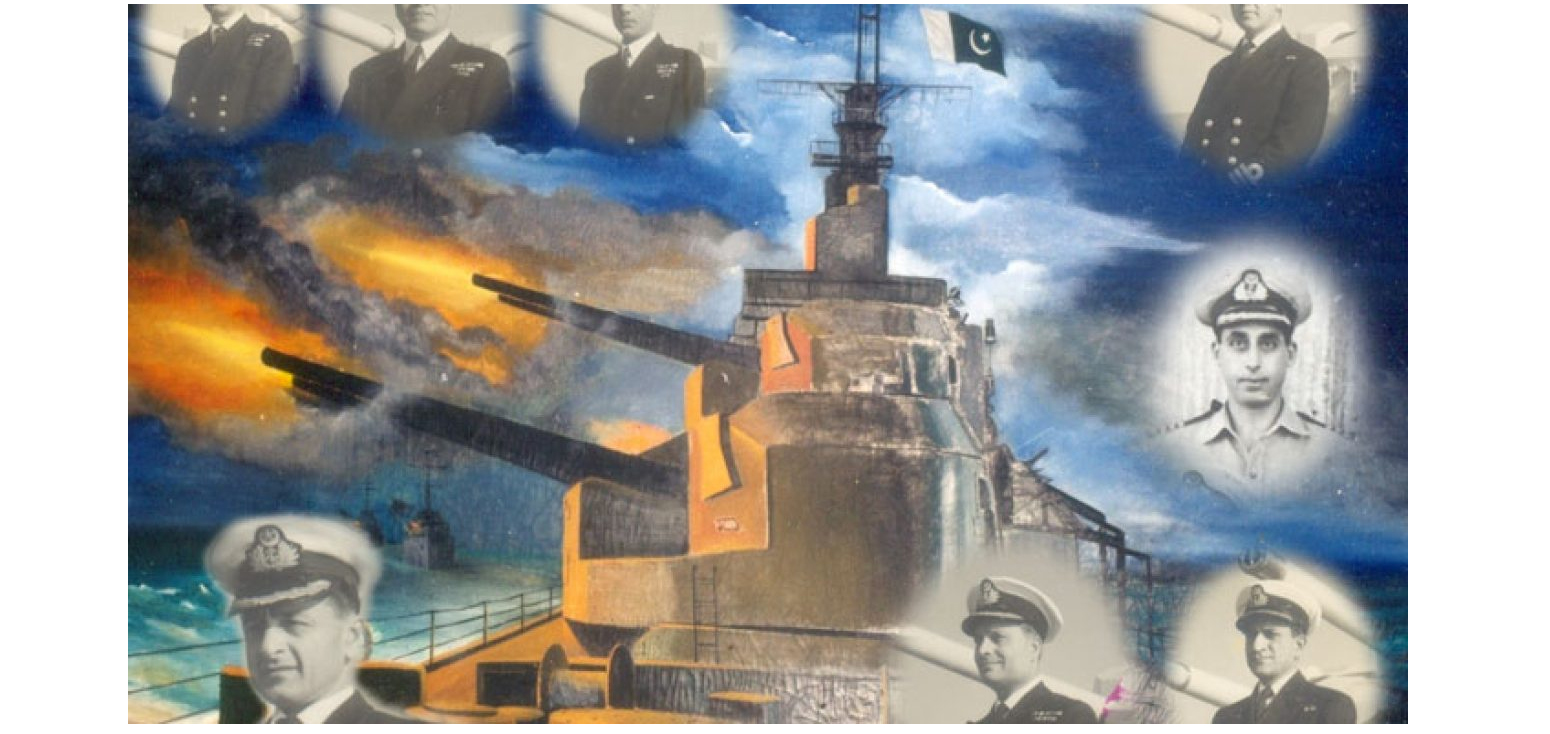Bakhtawar Munir
The Indian Ocean, the third largest ocean in the world, covers roughly 27% of global maritime space. The Sea Lines of Communications (SLOCs), transiting through Indian Ocean, are of fundamental importance as far as global maritime connect is concerned. The Indian Ocean is a relatively enclosed water body in comparison with Pacific and Atlantic Ocean. The periphery of this ocean is surrounded by several states which share competing interests in Indian Ocean. The Indian Ocean centric choke points, stretching from Suez Canal in West, and Malacca Straits in East, are of pivotal economic and strategic importance.
Strait of Hormuz, the choke pant in Persian Gulf, is the life line of global oil economy as the oil from oil-rich gulf nations enter into global market after passing through these strait. This strait is the core of regional power politics as it has the potential of shaping the global economy.
Pakistan is located in north of Indian Ocean, close to Strait of Hormuz, and has sovereign control over 290,000 Sq. Kms. of maritime area. The maritime area of interest of Pakistan stretches as far as Southern Indian Ocean. The security of regional SLOCs and Pakistan’s maritime connectivity with rest of world is the key security objective of Pakistan Navy. Maritime security involves the security of maritime domain and all activities associate with it. This include security of national sovereignty, maritime economy, marine environment and maintenance of law and order, in the maritime domain.
When it comes to the Indian Ocean, Pakistan is compelled to fulfil a number of obligations. It is critical to note that our geographic position is extremely crucial. It is also a meeting point for three different civilizations. It manifests itself as a result of this entry point into the area, which is quite significant. The fact that so many more regional troops are taking an interest in this area is due to the significance of this region. We are fortunate to have this location since it provides access to both the Indian Ocean and the Arabian Sea.
In terms of both energy supply and trade, Pakistan is completely reliant on the Indian Ocean, which accounts for nearly all of its imports and exports. We will suffer catastrophic repercussions if there is any disruption in either oil supplies or international trade. We also have a 290,000 square-kilometer of maritime area. Shortly put, there is a great deal at risk for Pakistan in this particular sector. It becomes extremely vital for the Pakistan Navy to play a role in such an environment. Pakistan is a developing country with limited resources to handle the country’s rising geostrategic, political, social, economic, environmental, and technical concerns.
The Arabian Sea, which is part of the Indian Ocean, is secured by Pakistan’s second biggest fleet in South Asia, which is also the world’s second largest. The Pakistan Navy’s (PN) mission has evolved drastically in the post-Cold War era. For a long period of time, the navy’s principal duty was to serve as a formidable combat force that was always prepared to defend the country’s territorial seas. The new strategic adjustments have expanded the PN’s duties in order to address these issues.
India is increasing its position of power and control in the Indian Ocean region by deploying naval forces around the region and establishing favourable connections with states located within the Indian Ocean region. There are also a huge number of states that are continuously threatened by their neighbors. Pakistan also hopes to benefit from India’s worldwide isolationist campaign against Pakistan. India has also developed strong connections with the United Arab Emirates and Saudi Arabia, both of which have previously aided Pakistan and maintain cordial relations with the country. Pakistan has occasionally taken the lead on collaborative projects, the most recent being the US$20 billion project in the nation. Pakistan should also take this step, since it will benefit the country. Pakistan should strengthen its cybersecurity and maritime technology to overcome threats at Arabian Sea.
[17:57, 20/09/2021] Uzma NAVY: EXAMINING PN INITIATIVES SINCE 2002
Written by: Mominyar Khaiid Butt
In the changing geopolitical and geostrategic environment, securing maritime interests has become all the more important especially when nations’ economic security is tied to the security of sea lanes of communications (SLOCs). Pakistan, with its proximity to strategic choke points and location at the most nuclearized ocean of the world transiting 80 percent of sea borne trade in oil, carries immense responsibility to ensure a peaceful environment in Indian Ocean Region,(IOR). Consequently, the role of Pakistan Navy becomes important and must be 9Wined in order to ward off sea blindness.
Being fully aware of the threats and challenges emanating from the IOR, Pakistan Navy has been actively contributing towards regional maritime security through various maritime exercises for demonstrating combat readiness, fostering joint maritime cooperation and improve inter-operability among regional and extra-regional navies. AMAN is one such exercise being organized biennially since 2007. What makes it unique and effective is the participation ‘of regional and extra-regional navies to signify unity and collective resolve to fight he common threat emanating from the sea, thereby, creating a doctrinal synergy among navies to tackle maritime security challenges together.
Similarly, Regional Maritime Security Patrol (RMSP) launched in 2018, is another initiative of Pakistan Navy aimed at promoting region-centric approach of maritime security by limiting dependence on extra regional powers for maritime patrolling in IOR so that economic and scientific activities at sea continue unhindered. It shows the utmost resolve of Pakistan Navy to ensure freedom of the seas and has therefore, earned itself a place among responsible, active and robust navies of the region.
In addition to that, Joint Maritime Information and Coordination Centre (JMICC) was launched by Pakistan Navy in 2013 in view of increasing threats emanating from the sea. By harmonising the efforts of all maritime-related agencies and organisations, JMICC aims to generate a coordinated and timely response to maritime security challenges within Exclusive Economic Zone (EEZ) of Pakistan, thus, ensuring security of maritime environment.
Apart from actively contributing towards regional maritime security, Pakistan Navy has also invested in creating a vigorous security apparatus for the protection of vital coastal installations in the wake of China-Pakistan Economic Corridor (CPEC). Coastal Security and Harbour Defence Force and Task Force-88 (TF-88) are worth mentioning here. Comprising of ships, coastal security stations, fast attack aircrafts, drones, surveillance assets, Pakistan Fleet and Pak Marines altogether, both the forces act as force multiplier for the security of CPEC against traditional and non-traditional threats.
In addition to fulfilling the primary responsibility of seaward defence, Pakistan Navy is leading the way in projecting maritime awareness and promoting blue economy. National Institute of Maritime Affairs (NIMA) established in 2006 under the aegis of Bahria University is helping to achieve the aforementioned objectives. In this regard, International Maritime Conference (IMC) being organised biennially since 2007 under the auspices of NIMA and in tandem with AMAN Exercise is worth mentioning here. The Conference with various themes ranging from blue economy to maritime security renders quality input to the policymakers and broadens the horizon of academic research on maritime affairs. Besides this, to augment maritime research, National Centre for Maritime Policy Research (NCMPR) was established in 2007 to become a seat of maritime policy research by engaging scholars and researchers to provide solutions to the challenges in maritime domain.
Similarly, Maritime Security Workshop (MARSEW) conducted annually under the auspices of Pakistan Navy War College, Lahore is ar9ftortant step in this regard. What makes it unique is that dignitaries from different walks of life ranging from parliamentarians to academia are invited to attend this two-week workshop consisting of on-campus academic activities and a visit to Navy installations in the South. It is pertinent to mention that on the occasion of MARSEW-18, the first ever Maritime Doctrine of Pakistan (MDP) was launched for better understanding of maritime affairs. Similarly, MARSEW-19 marked the watershed moment for projecting maritime awareness when Maritime Centre of Excellence (MCE) the first of its kind, was established in PN War College in December 2019 with the aim to promote maritime research studied devise national maritime narrative. Last but not least, projects such as Pakistan Maritime Science and Technology Park (PMSTP) in Karachi speak volumes about the firm commitment of Pakistan Navy towards blue economy and maritime awareness.
Being a custodian maritime security and blue economy, Pakistan Navy has remained at the forefront in building up its capacity and potential as per the changing needs and geostrategic realities. From demonstrating combat readiness to enduring maneuverability at sea to maritime patrolling in IOR to showcasing the potential of blue economy, Pakistan Navy has earned itself a place among the responsible, vigilant d robust navies of the region, thereby, promoting a peaceful image of Pakistan.
















